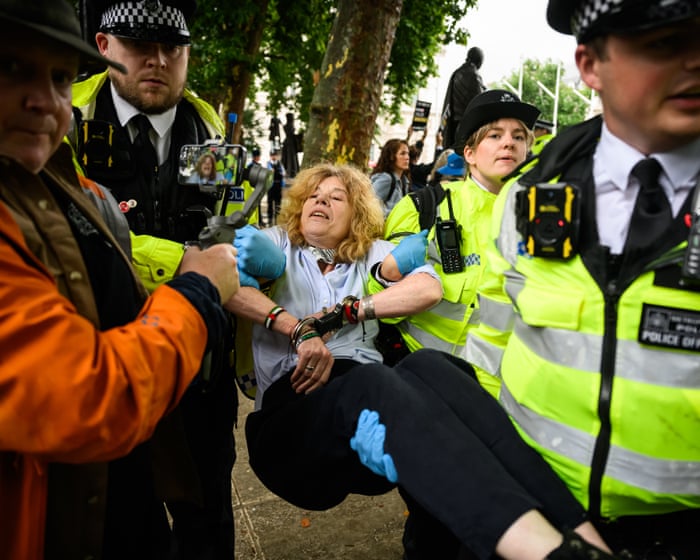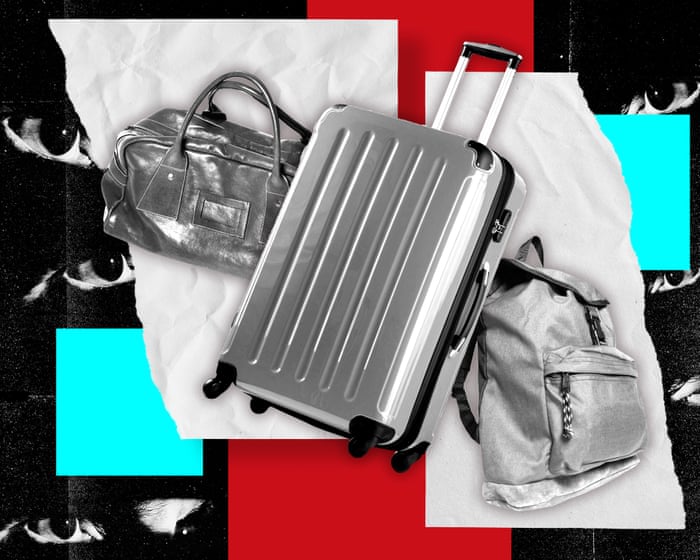I packed a toothbrush, books, and a notepad in a small backpack, grabbed my laptop from home and hid it, handed my phone to a friend for safekeeping, and tucked a “bust card” (with lawyers’ details and legal advice) into my back pocket. I wasn’t sure I’d be arrested, but I wanted to be prepared. Then, alongside far braver people, I stepped into a legal minefield.
Sections 12 and 13 of the Terrorism Act 2000 are so broad, and the government’s order applying them to the banned protest group Palestine Action so absurdly oppressive, that challenging it feels like navigating a maze—you never know which side of the law you’re on or how authorities will react. When peaceful activists opposing violence, war, and terrorism are arrested on terrorism charges, the world stops making sense.
Some police forces have gone completely overboard. South Wales police, for instance, arrested two women—aged 75 and 80—who were sitting quietly in Cardiff holding signs officers claimed supported Palestine Action. Using extended detention powers under the act, they denied one woman essential medication, broke into their homes, seized not just electronics but also books about Palestine and a Palestinian flag, and even appeared to test their kitchen food for radiation. Because, obviously, if you’re arrested under the Terrorism Act, you must be plotting an atrocity—maybe even cooking up a vegan dirty bomb.
West Yorkshire police arrested a man in Leeds for holding a Private Eye cartoon mocking the government’s ban. Armed officers in Kent threatened to arrest a woman for waving a Palestinian flag, claiming it violated the Terrorism Act. One officer told her: “Mentioning freedom for Gaza, Israel, genocide—all that falls under proscribed groups, which are terror groups dictated by the government.” At least he got the “dictated” part right.
Other forces seem to have decided they had better things to do. Or perhaps—just perhaps—they recognized that our right to free expression, protected by the Human Rights Act, outweighs the Terrorism Act’s restrictions. The two laws clash directly, leaving police as confused as the rest of us.
Your entire future could hinge on these arbitrary judgments. Expressing an opinion deemed supportive of a banned group—even if you didn’t intend to encourage support—can land you a 14-year sentence. The law is so vague that no one knows where the line is.
In Devon and Cornwall, our local police arrested eight people in Truro for holding signs they suspected backed Palestine Action. So when we told the deputy chief constable and our local station we planned a similar protest, we expected arrests.
It might sound reckless to invite police to a protest when the stakes are this high, but there’s a long tradition of accountable activism. Protest works when people see you’re serious—willing to stand by your principles, even if it means jail. The strongest response to an unjust law that stifles free speech is to challenge it openly, without fear.
Across the country, many brave people have done just that. Some, like the woman I stood beside in the marketplace, are extraordinary older activists. Mary Light, an 80-year-old retired nurse, is a gentle soul with unshakable resolve that puts me to shame. Instead of enjoying retirement, she’s been arrested 11 times for environmental and Palestinian causes. She stands against genocide while the UK government arms Israel and fights in court to keep selling those weapons.All while offering empty pleas to perhaps avoid using those weapons to kill so many unarmed civilians—if it’s not too much trouble?
My own protest sign aimed to challenge the free speech limits of the law. It read: “Palestine Action are protesters, not terrorists.” To me, this is simply an opinion—a criticism of an oppressive and extreme order. How the police and courts interpret it is another question. What one person considers a valid viewpoint, it seems, another can now label as support for terrorism.
Similar views have been voiced by the UN human rights chief, Volker Türk, and by MPs in Parliament. In fact, when she was in opposition, Home Secretary Yvette Cooper—who banned Palestine Action—criticized the Conservatives for doing exactly what she’s now doing. She accused them of “extending powers meant for serious violence and terrorism to peaceful protest,” arguing that their proposed laws disregarded “historic freedoms to protest.” Could we be arrested for repeating her words?
Two police officers showed up, lingered without purpose, then left before causing a scene. I’m still free—but next time, the result might not be the same. Those calling for peace risk arrest under the Terrorism Act, while state-backed violence against civilians continues unchecked.
As Voltaire might say, “those who believe absurdities commit atrocities.” But it’s also true that those enabling atrocities become absurd themselves. You don’t have to support Palestine Action to recognize they were trying to uphold international law by blocking weapons shipments to a state accused of genocide. Some were acquitted on these grounds. So why has the UK government branded them terrorists? Perhaps because, by supplying those weapons, it’s complicit in the same crimes. If you can flip morality upside down, maybe you can still pretend you’re the good guys.
The order the police are grappling with is as nonsensical as it is oppressive. Oppression and absurdity always go hand in hand.
—George Monbiot is a Guardian columnist
Event: On Tuesday, 16 September, join George Monbiot, Mikaela Loach, and other guests at the Guardian’s Climate Assembly, live at the Barbican in London or via global livestream. Book tickets at [Guardian.Live](https://Guardian.Live).
Have a view on this article? Email a letter (up to 300 words) for possible publication in our letters section. Click here to submit.



